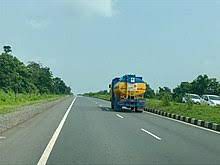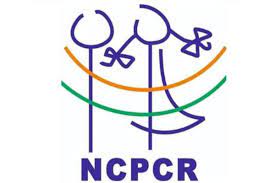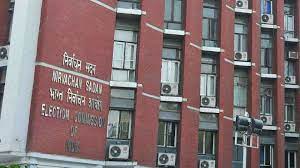Today Current Affairs:14th June 2022 for UPSC IAS exams, State PSC exams, SSC CGL, State SSC, RRB, Railways, Banking Exam & IBPS, etc
Table of Contents
Microplastics In Antarctica Snow:

Scientists have found Microplastics — plastic pieces smaller than a grain of rice — in freshly fallen Antarctic snow for the first time, which can influence the climate by accelerating melting of ice.
- Previous studies have found that microplastics have negative impacts on the health of the environment, limiting growth, reproduction, and general biological functions in organisms, as well as negative implications for humans.
- Finding microplastics in fresh Antarctic snow highlights the extent of plastic pollution into even the most remote regions of the world.
- Researchers gathered samples of snow from 19 different sites in the Ross Ice Shelf in Antarctica and discovered plastic particles in all of them.
- There were 13 different types of plastic found, with the most common being PET (Polyethylene Terephthalate), commonly used to make soft drink bottles and clothing. The possible sources of microplastics were examined.
- An average of 29 microplastic particles per litre of melted snow, which is higher than marine concentrations reported previously from the surrounding Ross Sea and in Antarctic sea ice.
- Microplastics may have travelled thousands of kilometres through the air, however it is likely that the presence of humans in Antarctica has established a microplastic ‘footprint’.
Sant Tukaram Shila Mandir:

Prime Minister Narendra Modi will inaugurate the Sant Tukaram Shila Mandir in the temple town of Dehu in Pune district.
- Sant Tukaram was the contemporary of Shivaji.
- He is considered as the greatest Maratha Bhakthi reformer.
- He made the Vithoba cult popular.
- He composed devotional songs on Vithalswamy called as Abhangs.
- He preached the message of equality and universal brotherhood.
- Sant Tukaram and his work are central to the Warkari sect spread across Maharashtra.
- Sant Tukaram is credited with starting the Wari pilgrimage.
- His master was Saint Chaitanya Mahaprabhu of the Bhakti movement.
Draft Anti-Trafficking Bill:

Activists from different part of the country are planning to travel to the national capital and press for the passage of the Trafficking in Persons (Prevention, Care and Rehabilitation) Bill, 2021.
Highlights of the Bill:
- The bill proposes stringent punishments for offenders, including hefty fines and seizing of their properties.
- The Bill also extends beyond the protection of women and children as victims to now include transgenders as well as any person who may be a victim of trafficking.
- The draft also does away with the provision that a victim necessarily needs to be transported from one place to another to be defined as a victim.
- Exploitation has been defined to include, at a minimum, the exploitation of the prostitution of others or other forms of sexual exploitation including pornography, any act of physical exploitation, forced labour or services, slavery or practices similar to slavery, servitude or forced removal of organs etc.
The law will extend to:
- All citizens inside as well as outside India.
- Persons on any ship or aircraft registered in India wherever it may be or carrying Indian citizens wherever they may be.
- A foreign national or a stateless person who has his or her residence in India at the time of commission of offence under this Act.
- Every offence of trafficking in persons with cross-border implications.
- Defence personnel and government servants, doctors and paramedical staff or anyone in a position of authority.
Trafficking in Human Beings or Persons is prohibited under the Constitution of India under Article 23 (1).
- The Immoral Traffic (Prevention) Act, 1956 (ITPA) is the premier legislation for prevention of trafficking for commercial sexual exploitation.
- Criminal Law (amendment) Act 2013 has come into force wherein Section 370 of the Indian Penal Code has been substituted with Section 370 and 370A IPC which provide for comprehensive measures to counter the menace of human trafficking.
Child Labour Day:

The United Nations observes June 12 each year as the ‘World Day Against Child Labour’ to bring attention to the evil practices of child labour across the world.
- The International Labour Organisation launched this day in 2002 to tackle this global issue against child labour.
- Theme: “Universal Social Protection to End Child Labour”.
- 160 million children are still engaged in child labour – some as young as five.
- At the beginning of 2020, one in ten children aged five and over were involved in child labour worldwide.
- The number of children in child labour declined by 85.5 million between 2000 and 2020 i.e from 16% to 9.6%.
- At the global level, national expenditure on social protection for children amounts to only 1.1% of GDP.
- Africa is the region with the largest share of children in the population.
- The ILO Convention No. 182, which deals with the worst forms of child labour as well as ILO Convention No. 138, that deals with the minimum age for employment, are the two main global conventions on the issue.
Paralitherizinosaurus japonicus:

A new study has revealed that it roamed around the shores of Asia between 66 million and 145 million years ago (Cretaceous period).
- It is a bipedal dinosaur.
- A new study has revealed that it roamed around the shores of Asia between 66 million and 145 million years ago (Cretaceous period).
- It was identified from the fossilised remains unearthed on Hokkaido, the northern island of Japan. The fossil is the first to be found in Asia in marine sediments.
- The dinosaur belonged to a group known as Therizinosaurs – bipedal and primarily herbivorous three-toed dinosaurs.
- The most remarkable aspect of this species is that it had sword-like claws.
Regional English Language Office (RELO):

Recently, a workshop was organised for English teachers under the supervision of the Regional English Language Office (RELO), Washington DC.
- RELO is a wing of the US Embassy in India that was established in 2005 as a part of its Public Diplomacy Section.
- Aim: To strengthen India-US ties by supporting English learning.
- Headquartered at the US Embassy office in New Delhi.
- RELO’s mission is to “support the effective teaching and learning of English in Afghanistan, Bhutan and India, while enhancing mutual understanding between the US and these countries”.
- RELO collaborates with state government and educational institutions to support them in teacher training, curriculum development and other English language training projects.
Gaganyaan And Human Ocean Mission:

Union Space and Earth Sciences minister Jitendra Singh said India will achieve the unique distinction of simultaneously launching the first human space mission “Gaganyaan” as well as the first manned human ocean mission in 2023.
- Trials for both the space and ocean manned missions have reached an advanced stage and the unique feat will be achieved, most likely, in the second half of 2023.
- Sea trials of 500-metre rated shallow water version of the manned submersible are expected to take place in early part of 2023, followed by the MATSYA 6000, the deep-water manned submersible that will be ready for trials by the second quarter of 2024.
- Similarly, for Gaganyaan, major missions like the test vehicle flight for the validation of crew escape system performance and the first uncrewed mission of Gaganyaan are scheduled in the second half of 2022.
- That will be followed by the second uncrewed mission at the end of 2022 carrying “Vyommitra”, a spacefaring human robot developed by ISRO, and finally the first crewed Gaganyaan mission in 2023.
- The Union government will soon unveil the “Blue Economic Policy” and added that an estimated 40 million people will be employed by ocean-based industries by 2030.
Technology Development Fund (TDF) Scheme Of Ministry Of Defence:

Raksha Mantri Rajnath Singh has approved enhancement of funding under Technology Development Fund (TDF) scheme of Ministry of Defence to Rs 50 crore per project from Rs 10 crore.
- The TDF scheme, executed by Defence Research and Development Organisation (DRDO), supports indigenous development of components, products, systems and technologies by MSMEs and start-ups.
- The TDF Scheme aims to provide a major fillip to the defence manufacturing sector by encouraging the industry to innovate and develop defence technologies in order to place India on the self-reliance trajectory.
- The scheme facilitates up to 90 per cent of the total project cost and allows industry to work in consortium with another industry/academia. With the enhanced funding, the industry and startups will be able to develop more complex technologies for existing and future weapon systems and platforms.
- It may be recalled that 25 per cent of defence R&D budget was earmarked for private industry, start-ups and academia in Union Budget 2022-23. The enhanced funding is in line with the budget announcement.
NH53:

State-owned NHAI has created a Guinness World Record for the longest continuously laid bituminous lane of 75 kilometres in 105 hours and 33 minutes on the national highway between Amravati and Akola districts in Maharashtra.
- The total length of the 75 kilometres of single lane continuous bituminous concrete road is equivalent to 37.5 kilometres of two-lane paved shoulder road and the work started on June 3, at 7:27 am and was completed on June 7, at 5 pm.
- The previous Guinness World Record for the longest continuously laid bituminous was for building 25.275 kilometres of road that was achieved in Doha, Qatar in February 2019 and that task was completed in 10 days
- The Amravati to Akola section is part of NH 53 and this is an important corridor which connects major cities like Kolkata, Raipur, Nagpur and Surat.
CiSS Application:

The National Commission for the Protection of Child Rights (NCPCR) has launched a “CiSS application” under the Baal Swaraj portal to help in the rehabilitation process of Children in Street Situations. (CiSS).
- Baal Swaraj is a portal launched by NCPCR for online tracking and digital real-time monitoring mechanism of children in need of care and protection.
- The portal has two functions- COVID care and CiSS.
- COVID Care link caters to the children who have lost either or both parents due to COVID-19 or otherwise post March 2020.
- The CiSS application is used for receiving data of children in street situations from all the states and union territories, tracking their rescue and rehabilitation process.
- The initiative is taken under the direction of the Supreme Court of India.
One Candidate One Constituency:

The Chief Election Commissioner asked the Ministry of Law & Justice to limit the seats from which a candidate can contest to just one.
- It had also recommended a ban on exit polls and opinion polls and said there should be some restriction on conducting and disseminating the results of opinion polls right from the day of the first notification of an election till the completion of the election in all its phases.
- As per Section 33(7) of the RPA (Representation of the People Act), 1951, one candidate can contest from a maximum of two constituencies.
- More constituencies were allowed until 1996 when the RPA was amended to set the cap at two constituencies.
- Since 1951, many politicians have used this factor to contest from more than one seat – sometimes to divide the opponent’s vote, sometimes to profess their party’s power across the country, sometimes to cause a ripple effect in the region surrounding the constituencies in favour of the candidate’s party and all parties have exploited Section 33(7).
- Since no Candidate can represent two Constituencies, the idea of this system appears to be illogical and ironic.
- The irony behind Section 33(7) of the RPA is that it leads to a situation where it would be negated by another section of the same Act – specifically, Section 70.
- While 33(7) allows candidates to contest from two seats, Section 70 bars candidates from representing two constituencies in the Lok Sabha/state. Assembly.
- After sacrificing one of the Constituencies, a by-election is automatically triggered immediately after the general election.
- For example, in 2014, after PM Narendra Modi won both Vadodara and Varanasi, he vacated his seat in Vadodara, forcing a by-election there.
- Lakhs of taxpayer rupees need to be shelled out because of a by-election that could have been easily avoided.
- Before 1994, when candidates could contest from even three seats, the financial burden was even heavier.
- Repeated elections are not only unnecessary and costly, but they will also cause voters to lose interest in the electoral process.
- Invariably, the by-election would most likely see fewer voters turn out to vote when compared to the first election a few days earlier.
- The system of one candidate, two constituencies provides a “wider choice to the polity as well as candidates”.
- Doing away with the provision could cause an infringement of the rights of the candidates contesting elections as well as curtail choice of candidates to the polity.




